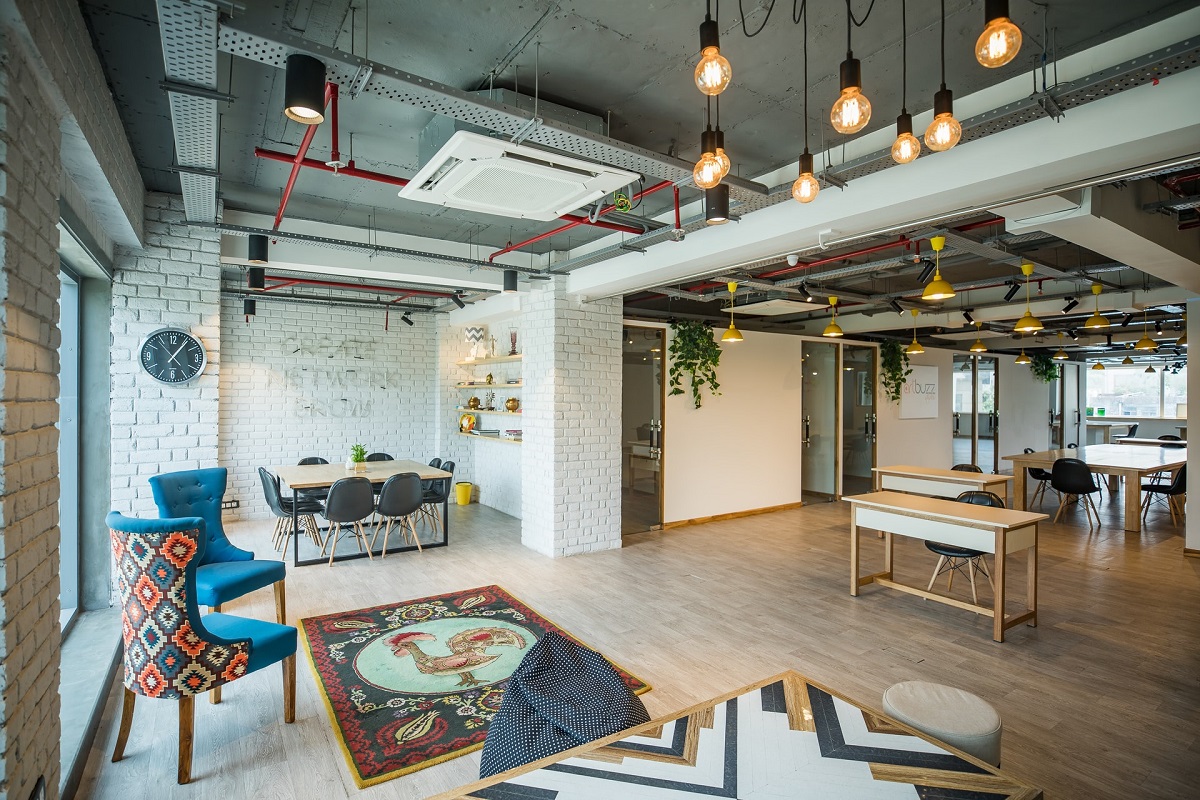Air conditioning for commercial buildings helps boost staff health and satisfaction, as well as customer retention. However, before you purchase a commercial AC unit for your business, you need to have a detailed picture of commercial air conditioning.
Air Conditioning for Commercial Buildings – How is It Different From Domestic Systems?
Air conditioning for commercial buildings is generally larger in size and involves more complex features, mechanisms, equipment and placement than a residential system. Indeed, as commercial activities, occupancy level, equipment and day-to-day processes differ from a domestic setting, heat and humidity variations too differ. Installing your commercial AC unit on your roof can help maximise interior space and easy access in AC maintenance. In addition, another advantage of the exterior placement of your AC unit is minimising noise disruption. However, if you consider installing a commercial air conditioner on your commercial property in London, you need to work with a commercial air conditioning company in Surrey.
Register for a local air conditioning service contract with Split Level Air Conditioning. Drop us a message.
What Are the Types of Commercial Air Conditioners?
- Split type air conditioning tends to be popular as it provides flexibility, cost-efficiency and reliability. These are placed with a separate condenser unit fixed outside your building. This type is quiet, easy to maintain, and has low operating costs.
- Wall-mounted AC systems rate high on the adaptability front and are easy to install. These AC units generally have a filter designed to destroy fungi, dust, bacteria, and viruses to clean air. The latest wall-mounted AC units come with inverter compressor designs with quieter fans. Hence, wall-mounted systems produce low noise while offering high-performance cooling and heating.
- Ceiling cassette air conditioning systems are suitable for large open spaces and irregular shaped rooms. This type works well with buildings with suspended ceilings and is a good option if you want to save wall space in your shop or office.
- Floor-mounted air conditioning units are more suited for smaller shops, cafés or serving rooms. This type of air conditioner is a good choice if you have no ceiling or wall space for AC installation.
Ducted air conditioning systems often involve inverter-driven compressors. These systems suit lots of different environments. You could conceal the ducted system in your ceiling, or it can be part of your interior design.
How to Optimise Air Conditioning in a Commercial Building?
First of all, you need to determine the size of your room (sq. Ft.) and match it to BTUs (British Thermal Units). BTU charts provide a reliable guide to matching the size of the room to the volume of air needed to cool or heat your commercial building.
Size of the room (Sq.Ft.) BTUs
100 – 150 8,000
150 – 250 9,000
250 – 300 10,000
300 – 350 12,000
350 -400 14,000
400 – 450 18,000
450 – 650 25,000
However, other factors such as the ceiling height, the number of people generally present in the building, and equipment in the space should be considered when deciding on the size and type of AC unit for your shop or office. This is why engaging a professional commercial AC company in London is essential. A professional AC installer or technician will be able to come up with the best design, type of AC and placement plan for your office or shop AC.
What Does AC System Installation Involve?
The first critical step in commercial AC installation is assessing the size of the building. The geographical location of your commercial property is another guiding point to determining the adequate cooling and heating requirements. Typically, an air conditioning technician in London will assess the internal processes of the building that affects the ambient temperature. Typically, commercial spaces house manufacturing areas or kitchens, where heat is generated most. These spaces require AC systems with zone controlling capabilities. Another critical element of AC installation is the proper layout of ducts.
The safety and efficiency of an AC unit depend on proper installation and provision of sufficient space for repairs and maintenance. Moreover, the AC unit should be installed far from heat sources such as direct sunlight. Your AC unit’s electrical connection should follow the guidelines to prevent power trips and unnecessary accidents. The technician runs a quality assessment test once the AC system is installed correctly.
How to Maintain a Commercial AC System?
The lifespan and efficiency of your AC system depend primarily on proper and regular maintenance. You can do some jobs yourself, like checking for leaves or debris in the system. However, you should always consult a trained professional for annual servicing.
Contact our team to book an AC service call out or contact us for maintenance and service quotes.

